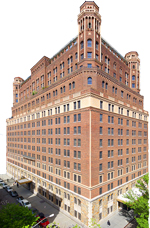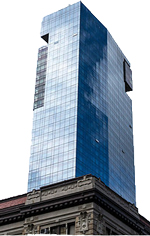 Whether you call them the Selfie Generation, Generation Me or the Do-Gooder Generation, it’s clear that millennials are the biggest and most economically powerful population on the planet. And that fact isn’t lost on the real estate and business worlds. Everyone from condo developers to landlords to office-sharing firms to co-living startups have been tripping over themselves for years now to cater to those born between the early 1980s and the late 1990s. But as millennials age and gain wealth, their real estate preferences and spending habits are changing. “Millennials are finally starting to look at the housing market,” said Realtor.com’s chief economist Danielle Hale.
Whether you call them the Selfie Generation, Generation Me or the Do-Gooder Generation, it’s clear that millennials are the biggest and most economically powerful population on the planet. And that fact isn’t lost on the real estate and business worlds. Everyone from condo developers to landlords to office-sharing firms to co-living startups have been tripping over themselves for years now to cater to those born between the early 1980s and the late 1990s. But as millennials age and gain wealth, their real estate preferences and spending habits are changing. “Millennials are finally starting to look at the housing market,” said Realtor.com’s chief economist Danielle Hale.
To be sure, they are still tenants, with more than 18 million millennial-led households renting at last count — more than any other group. And a large percentage of them have put off buying because they are saddled with student-loan debt. In addition, Hale noted that with construction down, there are “not a lot of properties available for them.”
Still, in 2017, millennials officially surpassed baby boomers as borrowers for high-end mortgages. (They’ve dominated the market for smaller mortgages since 2013.)
Meanwhile, boomers, many of whom are the parents of millennials, are also altering the real estate landscape. Now empty nesters, they are selling homes, moving back into cities and renting. Bottom line, real estate players are looking to corner the market on both generations.

$12K
Starting monthly rent at 1802 Second Ave., an under-construction senior development on the Upper East Side. Meanwhile, in Brooklyn Heights, a private equity firm bought 21 Clark Street for $200 million and is converting it into luxury rentals for seniors.
$514B
The amount millennials injected into the U.S. housing market last year. At 83 million strong, they are now the largest age group in the country. They also took out 40 percent of home mortgages last year and, according to a 2017 report, now account for more than a third of U.S. home buyers.

$71B
The net worth of Facebook founder and millennial CEO ambassador Mark Zuckerberg. Zuckerberg might be in a financial league of his own, but 87 percent of millennials moved into management positions in the past five years versus 19 percent of boomers.
53%
The percent of U.S. residential properties that the country’s 75 million baby boomers own and occupy. By comparison, millennials own 11 percent, though that trend is already reversing.
 $3.84T
$3.84T
Hello, shortfall. U.S. public pension funds were facing shortfalls of nearly $4 trillion at last count, as fewer millennials contribute and more boomers draw benefits. Those funds are, of course, among NYC real estate’s largest investors and have poured money into such high-profile sites as 787 Seventh Avenue, Hudson Yards and the condo-hotel formerly called Trump SoHo.
234K
The number of millennials who moved to NYC between 2000 and 2010, prompting a surge in rental development. But new rental construction in New York logged a 31 percent drop in 2017 as more millennials purchased properties.
107

The number of coffee shops on the Lower East Side, where 242 Broome, a 55-unit condo, is located. About half of the units in the building, part of the Essex Crossing project, have already been bought by boomers and millennials, who’ve snapped up 20 percent and 40 percent of them, respectively, said a spokesperson for developer Taconic Investment Partners.
 35K sq. ft.
35K sq. ft.
The size of Uber’s second NYC lease at 1400 Broadway. The firm, a symbol of the millennial-driven shared economy, is just one of the startups changing the New York real estate landscape. The office-sharing surge, the pod hotel and co-living trends, and social media companies as major tenants are all at the forefront of that transformation.
Source: Forbes, New York Post, National Association of Realtors, Realtor.com, Bloomberg, CNBC and TRD
